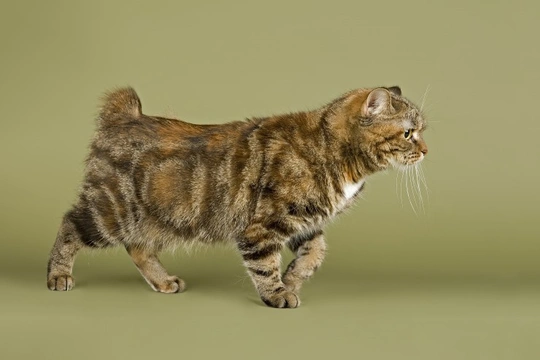
The charming Cymric cat
The Cymric cat is a charming feline and beautiful looking too. There are many tailless breeds around and others with very short tails, but the Cymric is the only breed that does not have a tail thanks to a natural mutation. If you are hoping to share your home with an extraordinary and intelligent feline friend and one that's out of the norm, you would not go far wrong in choosing to do so with a Cymric.
A little background history
The Cymric is native to the Isle of Man which is an island found just of Britain's coast. They are thought to be an ancient breed that has been around since the 1700s although it has been hard to establish if these tailless cats were native to the island or whether they arrived there on sailing ships. The Cymric is the long-haired version of the Manx cat and is thought of as a completely unique breed in many international cat associations.
Appearance
The Cymric stands out from the crowd not only because they are tailless, but also because they have lovely long coats and their back legs are a lot longer than their front ones. Some cats have normal length tails and are referred to as longies"" while some cats have very short tails and are called ""stumpies"" whereas other Cymrics can have just a very slight rise at the end of their spines where their tails should be and are called ""risers"".
Their coats are soft, long and very silky top coat with a lovely thick undercoat. These charming cats come in a variety of colours and colour combinations which includes chocolate and lavender to name but two. They have charming ruffs around their necks and breeches on their legs which adds to their overall sweet appearance. A lot of cats have tufts on their toes and ears too and because their bodies are well covered in long hair, they often look larger and longer than they really are.
Personality
The Cymric matures slowly which is when they are around 5 years old or so which means they retain their kitten-like traits for that much longer than many other breeds. Alert, active and loyal, the Cymric is renowned for being a very good hunter having been bred to be expert mousers. They are also known to be good at keeping an eye on what is going on in their environment and will ""growl"" much like their canine counterparts when something they don't like is going on making them great ""watchdogs"".
Even-tempered, affectionate and very loyal, the Cymric thrives in a home environment and forms strong ties with their families. They like to know what's going on and will follow an owner around the house to check up on what they are doing. Although active, a Cymric is just as happy to curl up on an owner's lap whenever they can because they love the company and contact.
They are not known to be overly talkative and have sweet, quiet, trill voices. With this said, they like to hold quiet conversations with the people they love whenever they can. Highly adaptable by nature, the Cymric is also incredibly social and loves meeting people even if they have never met them before.
Intelligent and quick witted, the Cymric likes playing interactive games which includes things like ""fetch"" and unlike many other breeds, they don't seem to mind going for a ride in the car which makes taking a pet to see the vet a much less stressful affair. One thing worth noting is that a Cymric is clever at opening doors and cupboards which means having to make sure doors are locked to prevent them from going out when you don't want them to.
It is also very easy to teach a Cymric not to jump up on work surfaces because they are quick to understand the boundaries that are set for them. The other endearing thing about the breed is that they get on well with children of all ages and will happily accept living with a family dog they have grown up with. They have also been known to get on well with larger pet birds and other pets, but care should be taken when a Cymric is around smaller animals and pets.
Care and maintenance
The Cymric may have a long coat, but they are low maintenance on the grooming front and only need brushing occasionally to keep things tidy. They are not known to be fussy eaters, but should be fed a good quality diet to suit the different stages of their lives.
What about health issues
Cymrics are known to suffer from a few hereditary and congenital health issues which includes the following:
- Cats with partial tails often suffer from arthritis on their tail bones
- Corneal dystrophy
- Manx syndrome
Life expectancy
The average life span of a Cymric can be anything from 8 to 14 years when properly cared for and fed a good quality appropriate diet to suit a cat's age.
""



